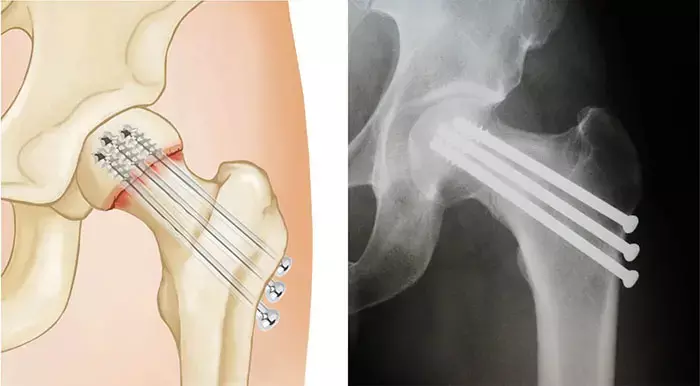- Home
- Medical news & Guidelines
- Anesthesiology
- Cardiology and CTVS
- Critical Care
- Dentistry
- Dermatology
- Diabetes and Endocrinology
- ENT
- Gastroenterology
- Medicine
- Nephrology
- Neurology
- Obstretics-Gynaecology
- Oncology
- Ophthalmology
- Orthopaedics
- Pediatrics-Neonatology
- Psychiatry
- Pulmonology
- Radiology
- Surgery
- Urology
- Laboratory Medicine
- Diet
- Nursing
- Paramedical
- Physiotherapy
- Health news
- Fact Check
- Bone Health Fact Check
- Brain Health Fact Check
- Cancer Related Fact Check
- Child Care Fact Check
- Dental and oral health fact check
- Diabetes and metabolic health fact check
- Diet and Nutrition Fact Check
- Eye and ENT Care Fact Check
- Fitness fact check
- Gut health fact check
- Heart health fact check
- Kidney health fact check
- Medical education fact check
- Men's health fact check
- Respiratory fact check
- Skin and hair care fact check
- Vaccine and Immunization fact check
- Women's health fact check
- AYUSH
- State News
- Andaman and Nicobar Islands
- Andhra Pradesh
- Arunachal Pradesh
- Assam
- Bihar
- Chandigarh
- Chattisgarh
- Dadra and Nagar Haveli
- Daman and Diu
- Delhi
- Goa
- Gujarat
- Haryana
- Himachal Pradesh
- Jammu & Kashmir
- Jharkhand
- Karnataka
- Kerala
- Ladakh
- Lakshadweep
- Madhya Pradesh
- Maharashtra
- Manipur
- Meghalaya
- Mizoram
- Nagaland
- Odisha
- Puducherry
- Punjab
- Rajasthan
- Sikkim
- Tamil Nadu
- Telangana
- Tripura
- Uttar Pradesh
- Uttrakhand
- West Bengal
- Medical Education
- Industry
Risk of postoperative delirium same with Neuraxial and General anaesthesia in patients with hip fracture

No significant difference between Neuraxial and GA related to incident delirium after hip fracture surgery suggests a new study published in the BMC Anesthesiology.
Evidence-based effect of anesthetic regimens on postoperative delirium (POD) incidence after hip fracture surgery is still debated. Randomized trials have reported inconsistent contradictory results largely attributed to small sample size, use of outdated drugs and techniques, and inconsistent definitions of adverse outcomes. The primary objective of this meta-analysis was to investigate the impact of different anesthesia regimens on POD, cognitive impairment, and associated complications including mortality, duration of hospital stay, and rehabilitation capacity.
Researchers identified randomized controlled trials (RCTs) published from 2000 to December 2021, in English and non-English language, comparing the effect of neuraxial anesthesia (NA) versus general anesthesia (GA) in elderly patients undergoing hip fracture surgery, from PubMed, EMBASE, Google Scholar, Web of Science and the Cochrane Library database. They were included if POD incidence, cognitive impairment, mortality, duration of hospital stay, or rehabilitation capacity were reported as at least one of the outcomes. Study protocols, case reports, audits, editorials, commentaries, conference reports, and abstracts were excluded. Two investigators (KYC and TXY) independently screened studies for inclusion and performed data extraction. The risk of bias was assessed using the Cochrane Collaboration risk-of-bias tool. The quality of the evidence for each outcome according to the GRADE working group criteria. The odds ratio (OR) and 95% confidence intervals (CI) were calculated to assess the pooled data.
Results
A total of 10 RCTs with 3968 patients were included in the present analysis. No significant differences were found in the incidence of POD comparing NA vs GA [OR 1.10, 95% CI (0.89 to 1.37)], with or without including patients with a pre-existing condition of dementia or delirium, POD incidence from postoperative day 2–7 [OR 0.31, 95% CI (0.06 to -1.63)], in mini-mental state examination (MMSE) score [OR 0.07, 95% CI (-0.22 to 0.36)], or other neuropsychological test results. NA appeared to have a shorter duration of hospital stay, especially in patients without pre-existing dementia or delirium, however the observed effect did not reach statistical significance [OR -0.23, 95% CI (-0.46 to 0.01)]. There was no difference in other outcomes, including postoperative pain control, discharge to same preadmission residence [OR 1.05, 95% CI (0.85 to 1.31)], in-hospital mortality [OR 1.98, 95% CI (0.20 to 19.25)], 30-day [OR 1.03, 95% CI (0.47 to 2.25)] or 90-day mortality [OR 1.08, 95% CI (0.53–2.24)].
No significant differences were detected in incidence of POD, nor in other delirium-related outcomes between NA and GA groups and in subgroup analyses. NA appeared to be associated with a shorter hospital stay, especially in patients without pre-existing dementia, but the observed effect did not reach statistical significance. Further larger prospective randomized trials investigating POD incidence and its duration and addressing long-term clinical outcomes are indicated to rule out important differences between different methods of anesthesia for hip surgery.
Reference:
Cheung, K.YL., Yang, T.X., Chong, D.YC. et al. Neuraxial versus general anaesthesia in elderly patients undergoing hip fracture surgery and the incidence of postoperative delirium: a systematic review and stratified meta-analysis. BMC Anesthesiol 23, 250 (2023). https://doi.org/10.1186/s12871-023-02196-9
Keywords:
BMC Anesthesiology, Cheung, K.YL., Yang, T.X., Chong, D.YC, Neuraxial, versus, general, anesthesia, elderly, patients, undergoing, hip, fracture, surgery, incidence, postoperative, delirium, systematic, review, stratified, meta-analysis
Dr. Shravani Dali has completed her BDS from Pravara institute of medical sciences, loni. Following which she extensively worked in the healthcare sector for 2+ years. She has been actively involved in writing blogs in field of health and wellness. Currently she is pursuing her Masters of public health-health administration from Tata institute of social sciences. She can be contacted at editorial@medicaldialogues.in.
Dr Kamal Kant Kohli-MBBS, DTCD- a chest specialist with more than 30 years of practice and a flair for writing clinical articles, Dr Kamal Kant Kohli joined Medical Dialogues as a Chief Editor of Medical News. Besides writing articles, as an editor, he proofreads and verifies all the medical content published on Medical Dialogues including those coming from journals, studies,medical conferences,guidelines etc. Email: drkohli@medicaldialogues.in. Contact no. 011-43720751


